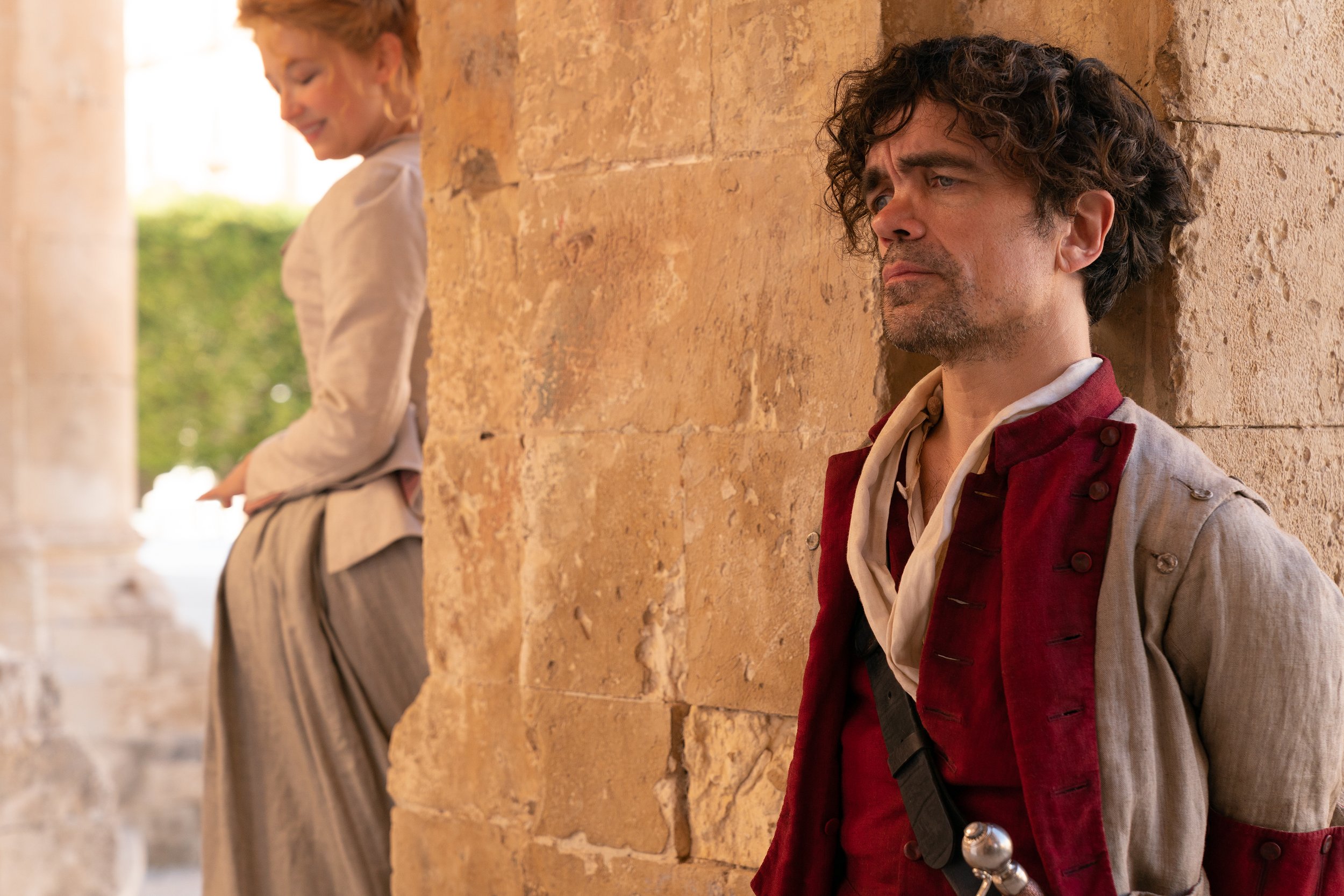Cyrano
Dinklage gives a nuanced performance that, despite his inability to match his co-stars in singing talent, brings pathos and warmth to this tragic romance.
Cyrano de Bergerac (Peter Dinklage), a military man with no social standing, is in love with Roxanne (Haley Bennett), the most beautiful woman in Paris. Despite being best friends since childhood, and having loved her for almost the same time, he harbors no confidence in his love with her having a future; primarily due to his physical stature. His heart is broken when he finds that Roxanne has fallen in love at first sight with Christian (Kelvin Harrison Jr.), a man she has never spoken to, only seen. As the leacherous De Guiche (Ben Mendelsohn) threatens to make Roxanne his bride, and Roxanne bids our titular hero to befriend her would-be love, Cyrano decides to help Christian win her heart by writing beautiful letters, in which Cyrano simultaneously pours out his own heart, while building Christian’s bonafides in Roxanne’s eyes. In the end, it’s a treacherous situation which can have only one conclusion. The truth will out, but will it be Christian or Cyrano that Roxanne chooses (and then, only if she can disentangle herself from the villainous De Guiche).
Director Joe Wright has taken a bit of a critical drubbing in recent years, with his much maligned Pan (which we kind of loved anyway) following the similarly disparaged Anna Karenina. There was a recent bright spot with Darkest Hour, but The Woman In The Window, a COVID-impacted release that got shunted to Netflix for both the cinema landscape and the quality of the picture, further dented the ouevre of a man who burst out the gates with Pride & Prejudice and the brilliant Atonement.
One thing that cannot be said for Wright, however, is that he plays it safe. Whether it’s the beautiful long take oneshot in Atonement, or the garish colours of Pan, Wright swings for the fences with everything he makes, sometimes to his detriment. Cyrano, too, harkens back to a musicality of old, with a visual landscape that is gorgeous, artistic and at times OTT. There’s beauty and fantasy here for sure, but also mixed in with the grittiness we’ve come to expect from modern musical-to-screen adaptations. The caked on makeup of De Guiche at the theatre in the opening scene is reminiscent of the grimy realness of Les Miserables, while the overlaid triptych of faces as the three leads perform a song together in flickering candlelight feels more like The Phantom of the Opera. It’s a heady mix of old and new sensibilities, that gives way to a strange feeling of dullness at times, and sheer wonder at others.
From a performance perspective, Dinklage gives a nuanced, towering performance. Incredibly expressive with his face, the actor doesn’t shy away from conveying the multitudinous emotions of his character in every action, gesture and expression. His performance can’t be matched by any in the group of assembled co-stars, and he shines by comparison. At least, that is, until he starts to sing. His vocal tones certainly leave a lot to be desired, and when compared with the operatic rest of cast, he struggles to hold his own musically.
Plot-wise, the piece is crushing emotionally but engaging throughout. Interestingly, the action is quite intense and well put together, which for a musical is an achievement. Occasionally, the dancing and staging is also compelling, with Christian’s big first scene in the barracks being a standout. It’s a shame, however, that there isn’t more whimsy, more engaging and inspiring dancing, and a more ambitious visual aesthetic. Particularly from a director who so frequently swings for the fences, there are moments here that feel too safe. Then, of course, there’s also plenty of moments when you wish it would speed along so that you don’t have to listen to Dinklage sing more.


